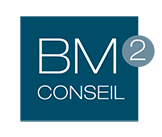Content
Understanding the available treatment options—from behavioral therapies and medications to mutual-support groups—is the first step. The important thing is to remain engaged in whatever method you choose. Evaluate the coverage in your health insurance plan to determine how much of the costs your insurance will cover and how much you will have to pay. Ask different programs if they offer sliding scale fees—some programs may offer lower prices or payment plans for individuals without health insurance. Coping with withdrawal may require hospitalization or inpatient care to ensure adequate supervision and medical intervention as necessary. This isn’t always the case, though, because different drugs have different withdrawal symptoms.

The success rate fluctuates, although it is believed that nearly 50 percent of people who receive treatment for alcoholism will never touch a drink again. Despite this information, a person is most at risk from suffering a relapse in the first 12 months following treatment. Attending an alcohol support group, such as Alcoholics Anonymous, allows individuals to share experiences with others who have been through the treatment process too. Self-help groups usually consist of a small group of recovering alcoholics and a professional therapist. Some states also offer recovering alcoholics the chance to stay in something known as a sober house. This is a residence where individuals can stay if they live in an environment where alcohol is commonplace.
Factors That Contribute To Alcoholism
Behavioral therapies help people in drug addiction treatment modify their attitudes and behaviors related to drug use. As a result, patients are able to handle stressful situations and various triggers that might cause another relapse. Behavioral therapies can also enhance the effectiveness of medications and help people remain in treatment longer. Studies show that people can alcoholism be cured who are alcohol dependent are two to three times as likely to suffer from major depression or anxiety over their lifetime. When addressing drinking problems, it’s important to also seek treatment for any accompanying medical and mental health issues. Medications can be utilized to treat symptoms of withdrawal, help people remain in treatment, and prevent relapse.
During the first year of the pandemic, women increased their “heavy drinking” days—days on which they had four or more drinks—by 41 percent, compared with 7 percent among men. One might dismiss the spike as attributable to the stresses of the pandemic, except that women’s high-risk drinking was increasing rapidly before then, too. Men born in the early 1900s were three times as likely as women to drink in problematic ways; today, women are almost as likely as men to do so. Female college students now binge drink more than male college students do.
What is an Alcohol Treatment Center?
When it is finished, it is highly recommended that addicted individuals stay connected to an aftercare program. Due to the withdrawal symptoms that occur from alcohol dependence, treatment for severe alcoholism should be done only on an inpatient basis at an alcohol rehabilitation center. Yet the condition can be effectively managed by teaching a person strategies that can help them cope with https://ecosoberhouse.com/ stress and environmental factors that contribute to their alcohol abuse. Drinking alcohol with medications can also cause health problems or death.1 Always check with your healthcare provider before drinking while taking prescription medicine. Alcoholism and chemical dependency treatment can help someone who has a problem with both drugs and alcohol get his or her life back on track.

Evaluating whether alcoholism is a disease requires an examination of the factors that contribute to alcoholism. Other symptoms take longer to appear, like long-term memory loss, slowed reaction times, and confusion. Most people know about the damage that the heavy consumption of alcohol causes to their liver.
Combined effects of drug and alcohol addiction
Harm reduction recognizes that while total abstinence is the goal, it is a process that takes time. Although quitting entirely is the best path to wellness, reducing or eliminating the most harmful substance use or behavior is a huge improvement and will greatly reduce the harm caused. Addiction leads to changes in the brain that make quitting more difficult.
You can start by discussing your substance use with your primary care provider. Or ask for a referral to a specialist in drug addiction, such as a licensed alcohol and drug counselor, or a psychiatrist or psychologist. Your health care provider or mental health provider will ask additional questions based on your responses, symptoms and needs. Preparing and anticipating questions will help you make the most of your appointment time. Someone with an alcohol addiction who has remained sober for months or years may find themselves drinking again. They may binge drink once or drink for a period of time before getting sober again.

Laissez un commentaire